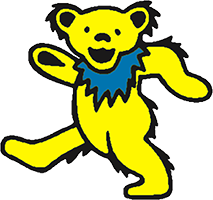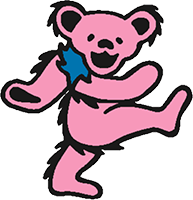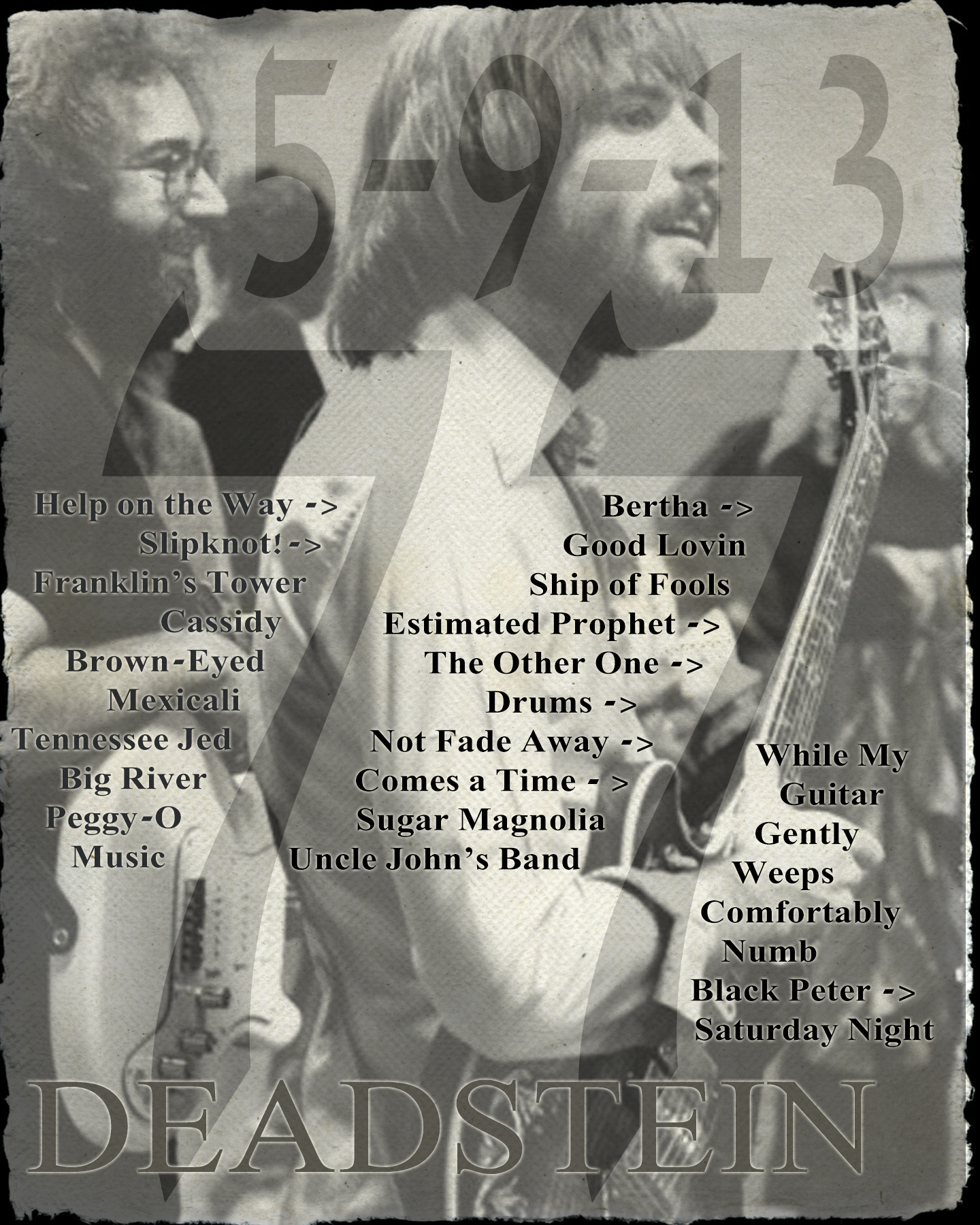 Carroll's 55th Street
Carroll's 55th Street

 Carroll's 55th Street
Carroll's 55th Street


In the world of the Grateful Dead, the month of May is to be celebrated for all the great music that was generated in May 1977. The Grateful Dead know how to honor this month in that they just released of a 5-show box set of several May 1977 shows. Deastein also knows how to honor the month by playing a show when we happen upon an anniversary date. Many in the Grateful Dead family reflexively look back at the May 1977 and believe the May 8, 1977 Cornell show is the show to end all shows. Obviously the Grateful Dead didn't rest on their laurels as they responded to that great performance on May 8 and drove west to Buffalo the following day to blow the roof off that arena in what I consider a hotter show than they infamous Cornell 77 show. Let the arguments begin.
It being Thursday, May 9, 2013 gave Deadstein the opportunity to pay homage to this great Buffalo show and we did. This was not a poultry show, foul from having its wings clipped, as a matter of fact I don't even this Buffalo wings were invented at the time of this show. All there was to chew on at time was pure iron enriched red Buffalo meat, no chicken, no blue cheese and G-d knows, no celery.
The beefiness of the show is apparent in its high powered first set, book-ended by the hottest parts of Blues for Allah. Help-Slip Franklins to open and a Music Never Stopped to close the first set. Additionally, you follow the opener with a Cassidy and you sprinkle in a bunch of other classic Jerry and Bob songs and you have a great first set.
Realizing that we were playing this week on May 9 gave me the foresight to call for the Buffalo show to be played. I got a setlist with MP3s out to everyone early on so they could give it a listen and hopefully practice a bit. I doubt anyone did any practicing but I personally took the opportunity to really try to get some of my Help on the Ways chops in my repertoire. I spent a lot of time in the days leading up to the jam trying to figure out most of the Help on the Way lead and I got that pretty much under my belt by the time the jam rolled around. When it was time to play it, I was able to recall what I had practiced and gave a pretty good effort. Since we were playing the May 9, 1977 version, I was provided two bites at the apple in this was a rare Help on the Way with a double-rounded lead. Additionally, I tried to point out to everyone that we were going to try to perform the Help on the Way and Slipknot! in the manner they played it in 1977. This was a little different than the Deadstein norm. Sure notes were missed and flubbed all over the place, but for the most part, this was one of our most coherent Help-Slip Franklins.
Not only did my home practice get me to play a semi-legitimate version of the Help on the Way, but it got my fingers working well in that my dexterity and musical thinking were on track all night long making playing an easy and fun experience for me. Even the Franklins Tower was greatly aided by a little practice I had been doing with the mixolydian modes earlier in the week. This gave me a whole new perspective on the song. I also learned the intro and outro of the Franklins which I had not addressed since first learning it 25 years ago. I think we also had a cool ending of the Franklin's Tower, mellowing our after the final lead to come back with a little vocal "roll away the dew" before finishing up with the outro.
Donna joined us just in time for the Franklin's Tower and stayed with us through the Ship of Fools in the second set. The Help-Slip-Franklins was a tremendous warm-up and got us ready for the Cassidy to follow. I think Donna and I did well to sing the song, our best version to date, and the jam was also nice and strong. While I failed to remind everyone that the '77 version didn't have a Ab minor whip in it, I forcefully ended the jam to the song and snuffed out any thoughts of the Ab minor whip before it manifested itself.
There were several parts of the 1977 feel that made songs more abbreviated than typical. The stand alone Mexicali Blues was fast and the two leads only got to experience one round per lead. This was short to the point. The Brown-Eyed Women which preceded the Mexicali also enjoyed a nice relaxed 1977 tempo, it wasn't the slow 1972 tempo nor was it the high paced tempo from 1982. It was reminiscent of a 1977 Brown-Eyed Women and it was just right. Like the Mexicali Blues, the stand-alone Big River was also very quick. Not that the leads were short, just that the tempo was very fast. I worked on some of the Jerry tempos prior to the jam at home and when it came to sustaining that tempo, we didn't have too much of an issue. This was one of a more peppy Big Rivers to date and it felt pretty good. The Tennessee Jed was also very well played as we were in a grove by that time in the evening.
Since Deadstein and Donna don't really know how to play Sunrise we skipped that song from the setlist when it came time to play it, no big deal. Additionally, Donna didn't really know her part to the Music Never Stopped, so I played the actual version a few times prior to use jamming it to help her get it. Music Never Stopped is one the great opportunities for Donna to shine and Donna did a great job of it when her time came. This was a Deadstein first to have Donna based Music Never Stopped and it was great to hear. I kind of surprised people with the quick turnover from the first part of the Music Never Stopped jam to the second part of the jam, but that is the way it was played in 1977. What I couldn't emulate was the greatness that is this jam from May 9, 1977 in that Jerry really rocked the world with that version. One of the best.
Amazingly enough, we played that first set and found ourselves 30 minutes ahead of the game at 9:30 with a first set behind us. At that "pernt" we decided to do the rhyme and then headed right into the opening of the second set which was a slow Bertha into a Good Lovin'. I went over the transition that they did to get from the Bertha to the Good Lovin' in 1977 and we hit it right on. The only problem is that our entrance into the actual Good Lovin' was terrible immediately following the transition and it took us a few measures to get into synchronicity. Since that was our only real issue with the opening combo, I still consider it a success.
Following another min-break we began the second set in earnest including the Ship of Fools in Bb. This too was well performed, considering that Bb is not our traditional key for that song. The Ship of Fools also represented Donna's last song with us as 10:30 was her midnight. This left us with the Estimated --> Other One --> Drums to complete the first half of the Second Set. The playing of the Estimated was well done up to the jam. Once the jam hit, I got the sense everyone was into a long drawn-out transition into the Other One as opposed to taking the time to play and enjoy the Estimated jam. Transitions should only take seconds and only a few measures and not minutes, I find we often take way too much time trying to transition into something as opposed to just playing the jam in front of us. With this stated, Kevin was oblivious to the pending Other One, no matter how obvious the long transition was, as he was sitting on the sidelines when it was his turn to begin the Other One. I felt as if I had to grab the Other One by the horns and get it going because I felt the night slipping from us at that moment. People were fading and losing focus and desire to play with any intention. It 'twas a shame.
A drum solo was followed by a min-space into a Not Fade Away. I thought the Not Fade was pretty good but Scott and Kevin were fading quickly were having trouble finding the groove of what should be some of the easiest of grooves for a Grateful Dead band to play. The following Comes a Time had a terrible entrance where we were all on different pages, literally as Kevin couldn't figure out how to turn to a proper page in his song book. Fortunately there were only a couple of songs to go for the setlist at that point and the Sugar Magnolia whipped back into shape. The show's encore of Uncle John's Band was played in a comfortable fashion tying up a few loose ends generated by our typical late-night inabilities.
We found ourselves with a good 30-40 minutes of music to play when we completed the Uncle John's Band so we decided to try to hit up some good non-Dead lead guitar types of songs. Alan thought the lead-G-ds were watching my back on this night, so he thought it was a good opportunity to take advantage of what was going on. The While My Guitar Gently Weeps and Comfortably Numb were the results of these feeling. I hadn't practiced either one in preparation for the week's music, so when lead time came, I was really flying by the seat of my pants. I may have had a few good notes, but for the most part, I didn't like how I performed during these two songs.
Afterwards it was time to get back to some good old Grateful Dead to close the night. I was yearning for something mellow and a Black Peter was suggested. I think it was a good choice because we did pretty well on it and our playing of the break in the middle of the song was one of Deadstein's best that I recall in our long, drawn-out history. At the conclusion of the Peter I called for the One More Saturday Night to close and that was a great cap to an excellent evening of music as this song was also pretty well performed considering we started it just after midnight.
It was definitely a satisfying night of music and it was a great tribute to a great show in a great month by a great band. While we had no guests to enjoy the music being made, at least Rich's two MP3 recorders were there to capture the experience, one picking up the room sounds while the other picking up the music going through the mixing board. Now it is up to me to try my best to get these two recordings into sync so we can enjoy the best of both worlds why trying to avoid the worst of them all. May the Freak be with You.